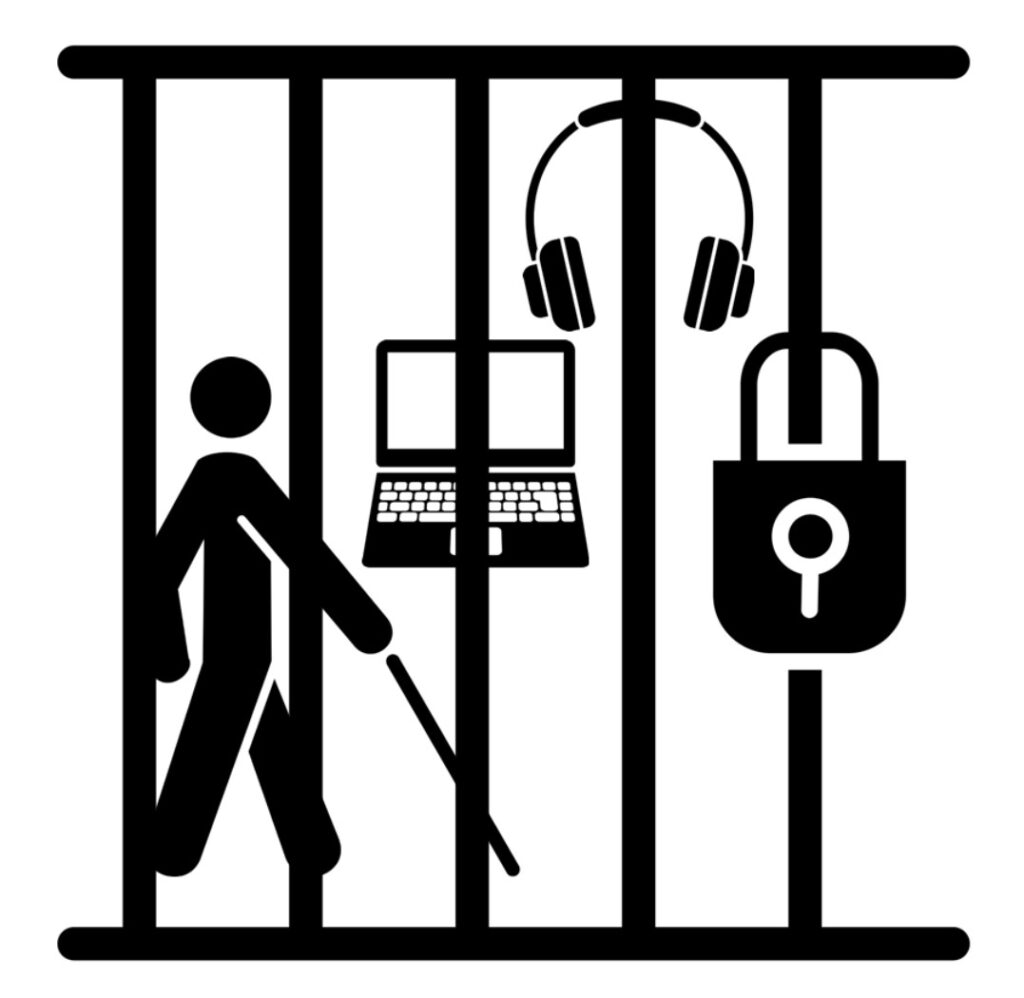Disability Law Colorado Settles Lawsuit Against Colorado Department of Corrections
Disability Law Colorado (DLC) and the Colorado Department of Corrections (CDOC) have reached a settlement in a lawsuit DLC brought on behalf of Deaf and hard of hearing people incarcerated in CDOC’s custody. DLC is represented by student attorneys and their professors at the Civil Rights Clinic (CRC) at the University of Denver Sturm College of Law, as well as attorneys from the Civil Rights Education and Enforcement Center (CREEC) and the Denver law firm of Fox & Robertson.
The lawsuit alleged that CDOC was in violation of the Americans with Disabilities Act (ADA) by failing to provide sign language interpreters for medical appointments, classes, and other significant interactions; failing to provide equal access to notifications and alarms; and failing to provide and maintain hearing aids.
In the settlement, CDOC commits to ensure that Deaf incarcerated people have access to sign language interpreters for key interactions such as intake and orientation; medical appointments; educational, vocational, and religious programs; and preparation for parole and release. CDOC will provide captioned telephones for hard of hearing incarcerated people, and continue to provide – per an earlier settlement with CREEC – videophones for those who are Deaf. CDOC will also ensure that hard of hearing incarcerated people are evaluated by an audiologist and provided hearing aids if necessary; those with hearing aids will receive prompt repairs and replacement batteries.
The settlement requires CDOC to provide text-based notifications for incarcerated people who cannot hear announcements over the public address system, and to provide a visual or tactile alarm system to ensure that Deaf and hard of hearing incarcerated people are not left behind in emergencies.
The lawsuit was the result of a two-year investigation by student attorneys at the CRC, who reviewed thousands of pages of documents and conducted hundreds of interviews. The investigation revealed systemic discrimination against Deaf and hard of hearing people and led to the filing of the federal court complaint in March of 2021.
Later that year, the parties began to discuss settlement, culminating in the agreement announced today.
“This settlement will finally ensure that Deaf and hard of hearing people are treated equally in Colorado’s prisons – that, like others, they can understand and communicate with medical personnel, succeed in educational and vocational programs, be safe in emergencies, and prepare for parole and release,” said Carrie Griffin Basas, DLC’s Executive Director. “We commend the CDOC for working with us improve the conditions for Deaf and hard of hearing incarcerated people.”
“For years, Deaf and hard of hearing people incarcerated by CDOC fought for their rights. We are grateful for their tenacity and courage. This settlement would not have been possible without their hard work and that of the multiple generations of Civil Rights Clinic student attorneys who fought alongside them,” added Professor Laura Rovner, Director of the Civil Rights Clinic. “We thank them, DLC, and our co-counsel for helping to bring about these critically important reforms.”
“We are excited for this important settlement and fortunate to have worked with DLC and d/Deaf and hard of hearing incarcerated people in this lawsuit,” said Pilar Gonzalez Morales, Director of the Accessibility Project at CREEC. “We commend the work of all the people held by CDOC who supported and helped us bring this lawsuit, as well as the work of our co-counsel partners.”
“We are grateful for DLC’s leadership in this important case, and for the courage of the individual incarcerated people who worked with us to document discrimination and craft the settlement,” said Amy Robertson, with the law firm of Fox & Robertson. We look forward to working with the CDOC to implement this ground-breaking settlement.”

